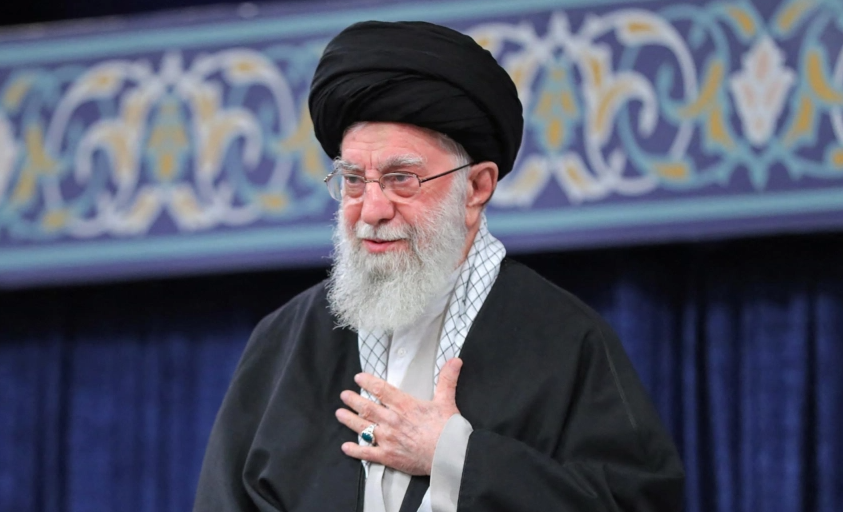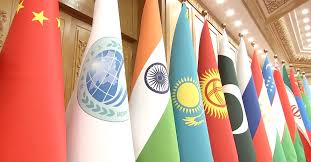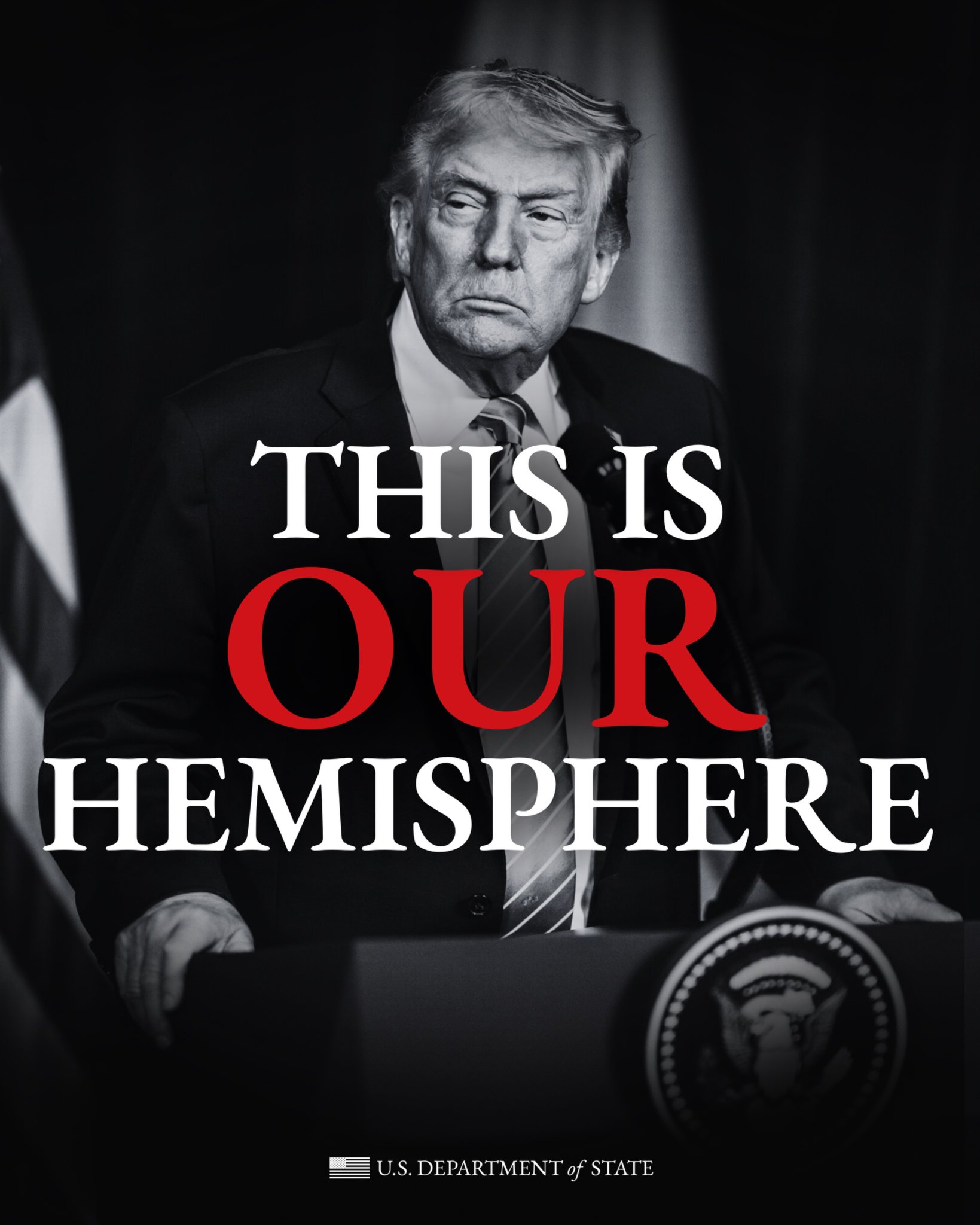The World in Focus | Analysis column
A week after Israel launched attacks on Iranian nuclear facilities, key military infrastructure, and residential buildings—killing senior officers, nuclear scientists, and civilians—the world is on the brink of a crisis that could lead to something similar to the Cuban missile crisis of 1962. The Israeli attack, with the consent of President Donald Trump, took place in the midst of negotiations between Iran and the United States in Oman on Iran’s nuclear program. The Israeli government did not wait the 48 hours remaining before the negotiations were due to conclude and launched an illegal attack that violates international law.
Unlike Israel, which is not a party to the Treaty on the Non-Proliferation of Nuclear Weapons (NPT), Iran, as a party to the Treaty, was subject to systematic reviews. In March of this year, the director of National Intelligence, Tulsi Gabbard, testified before the US Congress on Iran’s nuclear program and reported that Iran was not building a nuclear weapon despite having enriched uranium to higher levels. But Trump dismissed the assessment of his country’s intelligence agencies and said that their director was wrong and that, in his opinion, Iran was “very close” to having a nuclear bomb.
The Iranian government responded to Israel’s attacks in legitimate self-defense and announced the launch of Operation True Promise 3. Hundreds of Iranian missiles have managed to breach the “impenetrable” Iron Dome. The missiles launched from Iran hit targets hit in the cities of Tel Aviv and Haifa with surprising accuracy.
Israel needs U.S. military support to overthrow the Iranian government, the main objective of this military adventure. Will Trump launch a military incursion into Iran? This is the big question that has the world on tenterhooks. He has said he will take up to two weeks to decide whether to get involved. Diplomatically, Trump has been told that this would be unacceptable.
Anti-diplomacy

Hypnotized by the mirror image of his ego, Trump lacks the diplomatic skills to resolve a conflict of this magnitude. When the Iranian officials killed during the first Israeli incursion had barely been buried, he stated he knew the exact location of Iran’s supreme leader, Ali Khamenei, while ruling out, “at least for now,” the possibility of eliminating him.
Trump bears enormous responsibility for the current situation. In 2018, he withdrew from the Comprehensive Action Plan reached in 2015 to redirect Iran’s nuclear program toward civilian purposes in exchange for lifting sanctions that had been previously adopted by the signatory countries (the United States, Russia, China, the United Kingdom, France, and Germany), the European Union, and the United Nations. Ignoring his advisors, the other parties to the agreement, and with apparently no strategy, he suggested that only deterrence would solve the problems associated with proliferation and all others stemming from Iran’s “malign” behavior. Seven years later, talks between Iran and the United States resumed in April this year. The first talks were described as very positive and constructive.
The Israeli attack on Iran and the breakdown of negotiations led President Trump to claim that the Iranians had contacted him to negotiate at the White House, but it was too late to talk. Iran’s permanent mission to the UN immediately clarified that “no Iranian official has ever asked to be humiliated by the White House. The only thing more despicable than their lies is their cowardly threat to ‘eliminate’ Iran’s supreme leader.“ They said that Iran ”does NOT negotiate under pressure, will NOT accept peace under pressure, and certainly not with a war-mongering has-been clinging to relevance.”
Isolation
In terms of global governance institutions, the discrediting and isolation of the United States and Israel is growing. Twenty days ago, the U.S. was the only country to veto a UN Security Council resolution calling for a ceasefire in Gaza. On June 12, that same resolution, which calls for an immediate, unconditional, and permanent ceasefire in Gaza and the immediate release of all hostages, the entry of unrestricted humanitarian aid, and accountability on the part of Israel—received 149 votes in favor, 12 against (including the United States, Israel, Argentina, and Paraguay) and 19 abstentions in the United Nations General Assembly.
To specifically address the issue of the war unleashed by Israel’s attacks on Iran, the United Nations Security Council, convened by Iran, met on Friday. At that meeting, the Under-Secretary-General for Political Affairs, Rosemary Di Carlo, said that “any further escalation of the conflict between Israel and Iran could have enormous consequences for the region and for international peace and security.” She also reported on the devastating impact of the recent escalation on civilians in both countries and reported more than a hundred attacks on Iranian nuclear and military facilities, as well as homes, hospitals, and government buildings in Tehran and Ahvaz. She said that the death toll in Iran exceeds 200, although the Iranian Ministry of Health reported yesterday that the number has risen to 430. She also highlighted the bombing of Iranian television during a live broadcast and said that the conflict has led to fuel shortages and caused mass displacement, particularly in Tehran, which is creating a humanitarian crisis.
Regarding Iran’s response, he said that missiles had struck Tel Aviv, Haifa, and Beersheba, damaging critical infrastructure and leaving 24 dead, a figure maintained by Israeli authorities.
In a diplomatic way of telling the U.S. government not to get militarily involved in that war, UN Secretary-General Antonio Guterres said that escalating the conflict would be a direct threat to regional and global peace, with devastating consequences. Both China and Russia again strongly condemned Israel’s attack on Iran. The previous day, Presidents Xi Jinping and Vladimir Putin held a telephone conversation in which they agreed to urge Israel to suspend the attacks and warn the United States against military intervention, saying it would be “a very dangerous step.”
The director general of the International Atomic Energy Agency (IAEA), Rafael Grossi, highlighted the deterioration of nuclear safety at Iranian plants due to Israeli bombing. He noted that although there is still no radiation leak that could harm the population, there is a danger that this could happen, particularly at the Bushehr nuclear power plant. He reiterated the international ban on attacking nuclear facilities and material.
The U.S. representative alleged that Iran’s nuclear capability has been a constant threat to peace and security in the region and backed the Israeli attack, adding that Iran must “completely” abandon its uranium enrichment program. She added that the Iranian government must abandon its nuclear ambitions to avoid further destruction and instead choose prosperity for its people.
The Iranian ambassador responded that Israel’s attacks “were not an accident, nor were they collateral damage: they were deliberate war crimes, acts of state terrorism and an example of barbaric warfare.” He reiterated that Iran’s nuclear program is for peaceful purposes and recalled that Israel remains the only country in the Middle East with undeclared nuclear weapons. He said that, unlike Israel, which has attacked civilian facilities, including the bombing of five hospitals, his country’s military response has been in accordance with international law.
Almost all Arab countries in the region, Turkey, Asian countries, and the Muslim world have condemned the Israeli incursion. In Latin America, only Argentina and Paraguay have supported the Israeli attacks, and in Europe, except for the United Kingdom, Germany, France, and the Czech Republic, which have said that Israel has the right to self-defense, the rest have opted to call for de-escalation of the conflict.
The BRICS and the Shanghai Cooperation Agreement
Former national security adviser during Trump’s first administration, General Michael Flynn, believes that Israel is fighting for the preservation of Western civilization in this region and that it must finish the job, although he acknowledges that it will take some time. With his war against Iran, Benjamin Netanyahu believes that Israel is changing not only the face of the Middle East but also the world, and says “any help is welcome” to defeat the Islamic Republic’s nuclear program.
For Flynn, it is a matter of installing a pro-US government in Iran so that it will move closer to the Indian government, “since Prime Minister (Narendra) Modi is Islamophobic,” which is why he has become a close friend of Netanyahu. The former Trump adviser points out that the United States wants Iran to be close to his country and India, and opposed to Pakistan, to form a strategic alliance with Japan, South Korea, and the Philippines and thus regain hegemony in the Indo-Pacific region to confront and encircle China, according to his words.

Within the framework of the Shanghai Cooperation Agreement (SCO), a cooperation and security organization in the Eurasian region established in 2001 by China, Russia, Kazakhstan, Kyrgyzstan, Tajikistan, and Uzbekistan, which was later joined by India, Pakistan, and Iran, the Israeli attacks against Iran were emphatically condemned. The organization denounced them as attacks against civilian targets, which have resulted in the death of non-combatants, constituting both a violation of Iran’s sovereignty and a “gross violation of international law and the United Nations Charter.” They also “firmly advocated for the resolution of the situation surrounding Iran’s nuclear program exclusively through peaceful, political, and diplomatic means.”
However, the following day, the Indian Foreign Ministry said it had not participated in the discussions on the statement. The position of that ministry does not condemn Israel’s attack on Iran and only urges that channels of dialogue and diplomacy be used to work towards de-escalation. It should be noted that India is Israel’s largest arms buyer, and in 2024 Indian arms companies also sold rockets and explosives to Israel during the war in Gaza, according to an investigation by Al Jazeera. At the same time, India has been developing the Iranian port of Chabahar as a gateway for its exports to Central Asia and Afghanistan.
One day before distancing itself from the SCO statement, India abstained from voting in the UN General Assembly on the aforementioned draft resolution calling for an “immediate, unconditional and permanent” ceasefire in Gaza, due to the killings of Palestinians by the Israeli army as they went to collect food distributed by a system organized by the US and Israel, which was seriously criticized by the United Nations and other humanitarian aid entities. This is the same resolution that was vetoed by the US in the UN Security Council on June 4.
Some analysts attribute this vote to India’s desire to maintain good relations with the United States, as it is close to a trade agreement with that country slated to be finalized before Trump’s 27% tariff on Indian products takes effect in early July.
Finally, Iranian Foreign Minister Abbas Araqchi and his counterparts from France, the United Kingdom, Germany, and the European Union’s high representative for foreign affairs left open a diplomatic channel regarding Iran’s nuclear program. Iran has conditioned negotiations on Israel ceasing attacks against its territory, after a meeting in Geneva on Friday.
Iran represents a wedge in the geopolitical project of Israel and the United States. More than its nuclear program, they are concerned about its strong ties with Russia and China. In recent years, all of Israel’s neighboring governments have been destabilized and overthrown with the support of the US government, except for Iran. Its turn is coming in a multipolar world with a serious internal crisis in the United States.

“The world in focus” is Ariela Ruiz Caro’s biweekly column for Mira: Feminisms and Democracies. Ariela Ruiz Caro is an economist with a master’s degree in economic integration processes and an international consultant on trade, integration, and natural resources at ECLAC, the Latin American Economic System (SELA), and the Institute for the Integration of Latin America and the Caribbean (INTAL), among others. She has served as an official of the Andean Community, advisor to the Commission of Permanent Representatives of MERCOSUR, and Economic Attaché at the Embassy of Peru in Argentina.



